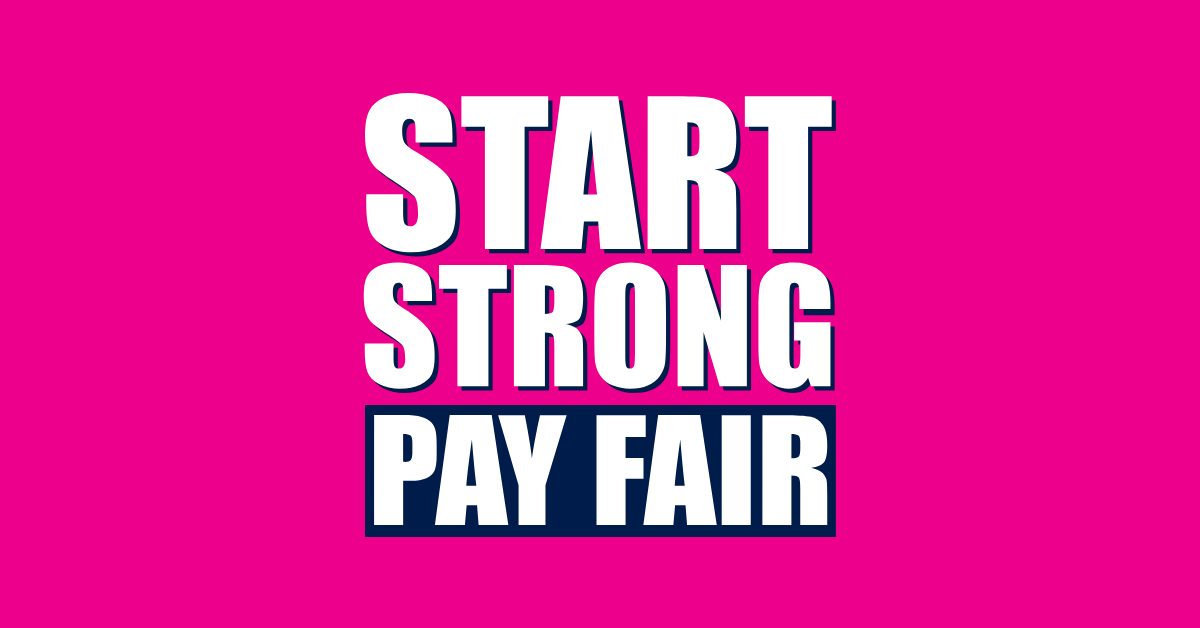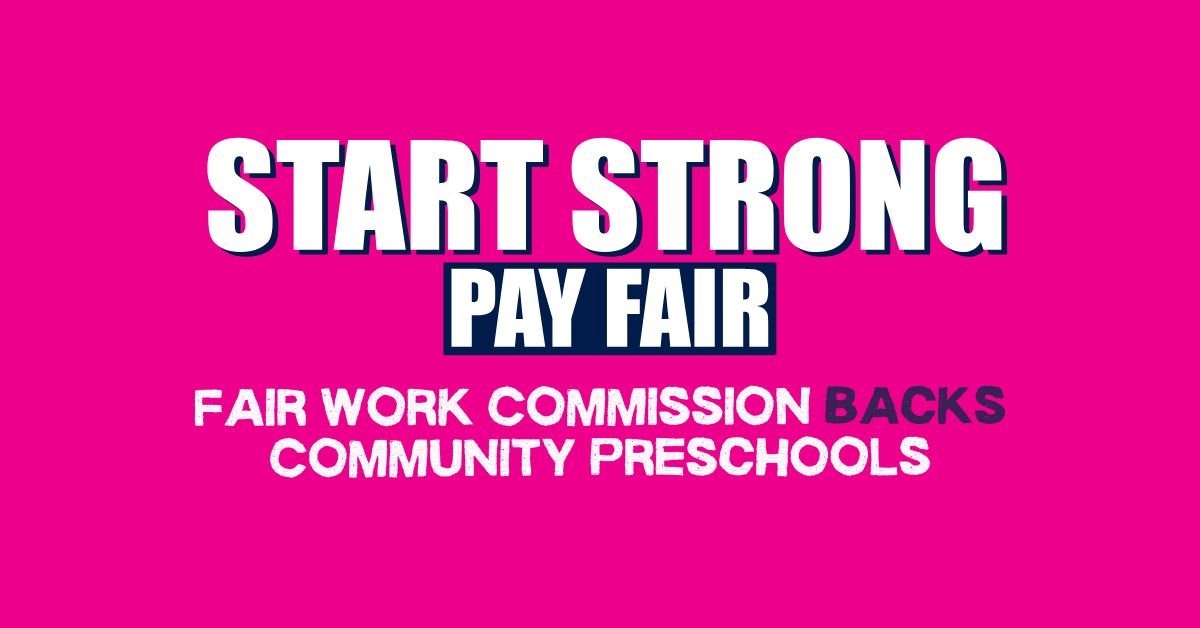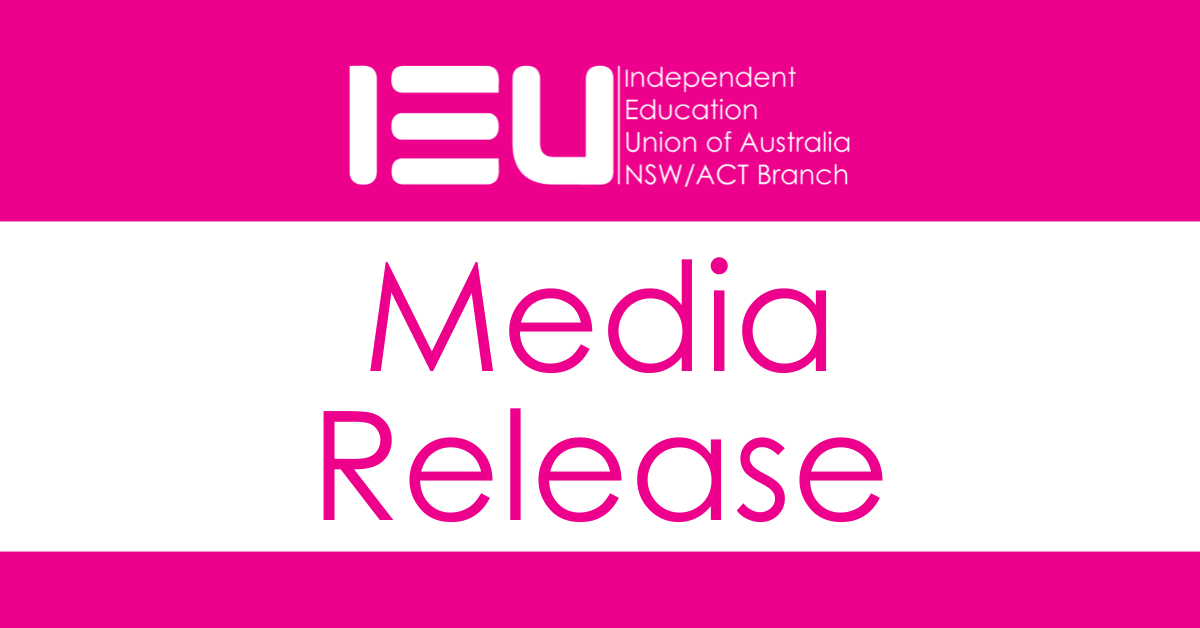The union is shocked and distressed by revelations of abuse and mistreatment of young children in the early childhood education and care sector.
“The allegations emerging from Victoria in early July, together with the abuse and mistreatment of children uncovered by Four Corners in March leading to a NSW Upper House Inquiry, are deeply disturbing and require strong action,” said Independent Education Union of Australia NSW/ACT Branch Secretary Carol Matthews.
“For more than 50 years, union members have pushed for better pay, conditions and training to ensure higher standards of early childhood education and a strong culture of child safety.”
The union is actively engaged with the National Child Safety Review as well as the NSW Upper House Inquiry into the early childhood education and care sector. We have also consulted with the NSW regulatory authority for early childhood education and care.
For more information, read our media releases:
- July 31: Union welcomes chid safety legislation – and calls for more reform
- July 23: Early childhood teachers union welcomes child safety legislation
- July 4: Child safety – Union calls for considered response after shocking allegations
NSW Upper House inquiry: IEU outlines reforms to fix crisis
The IEU calls for early childhood teachers and educators to have comparable pay and conditions to their colleagues in schools to help solve the crisis in the early childhood education and care sector.
The union also wants a reduction in paperwork to ease the workload burden that is exacerbating the staffing crisis. In a submission to the NSW Upper House inquiry into the early childhood education and care sector, the IEU called for a greater emphasis on developmental and educational outcomes and less focus on data collection and “documenting everything that happens throughout the day”.
Better pay and conditions and reducing paperwork are amoung the 25 recommendations in the union’s submission to the inquiry. Other recommendations include reform of the accreditation system to reduce the stress and burnout the current process causes that, in turn, is contributing to staff abandoning the sector.
The inquiry, to be chaired by Greens MP Abigail Boyd, was prompted by the shocking revelations of mistreatment and abuse of young children in centres run by for-profit operators.
The IEU also wants measures to improve the safety and wellbeing of children. Employers should be held to account if they fail to provide a safe workplace or underpay employees.
Pay parity with primary schools
The IEU’s submission argues that better pay and conditions are key to improving the quality of early childhood education and solving the sector’s staffing crisis. Early childhood teachers and educators should have pay parity with their colleagues in schools.
“Substantial improvements in wages and conditions are required to provide the highly feminised and ethnically diverse workforce with a standard of living adequate for their health, wellbeing and security,” the submission said.
Teachers and educators in some for-profit centres are expected to perform duties outside their professional responsibilities such as cleaning toilets, mopping floors and cleaning windows, the submission said.
Inadequate support for children with additional needs
The impact of inadequate support for children with additional needs is also noted. Union members report up to 60 per cent of children in their centres have learning support needs, which require extensive documentation and often specialised training.
Funding has also not kept up with the cost of providing education and care for children with diagnosed learning needs, undiagnosed needs, and challenging or extreme behaviours. This creates a potential risk to the health and safety of the individual child, other children and staff who struggle to care for children without adequate support.
Profits undermine safety and quality
Research consistently shows centres run by for-profit providers are of lower quality. The submission highlights the damaging impact of high staff turnover and staff shortages, including members being unable to take lunch breaks or adequate programming time or being forced to work additional hours.
It also outlines how the profit motive undermines child safety and service quality, with members reporting:
- managers and owners assaulting employees
- qualified teachers being replaced with less-qualified staff
- requests for maintenance being ignored, which endangers children
- a lack of support for staff injured by children
- they are discouraged from reporting incidents.
The submission notes that teachers working in for-profit centres report being underpaid or not receiving superannuation payments. It also said employment contracts issued by for-profit operators regularly breach minimum award standards.
Drowning in paperwork
Teachers and educators are leaving the sector in increasing numbers due to burnout and dissatisfaction, particularly the excessive workload caused by the volume of documentation that must be completed.
“Teachers constantly report that the amount of paperwork they are required to complete takes them away from being able to interact with the children,” the submission noted.
The union said the regulatory framework applied in NSW is complex, cumbersome and robs teachers and educators of opportunities for interacting with children.
Regulatory failings
The submission is critical of the NSW ECEC Regulatory Authority, which it said fails to provide advice on the national regulations and sends out ill-prepared officers who do not have adequate professional skills and knowledge to conduct assessments and ratings visits.
Draft reports based on these visits are poorly written, confusing and contain errors, lack detail and fail to assist centres to identify ways to improve their service. Instead, the accreditation process ignores the wellbeing of staff and is leading them to consider finding work in other fields.
“Directors report that teachers and educators have lost faith in the A&R [assessment and ratings] process and their confidence and sense of purpose have been eroded due to inconsistency and subjectivity of accreditation decisions,” the submission said.
Rethink funding model
The submission calls on state and federal governments to rationalise funding for the sector and stop propping up for-profit providers.
“It is incomprehensible that taxpayers fund for-profit long day care services in the same way that not-for-profit long day care services are funded,” the submission said.
“It seems to be a reasonable expectation that a company making millions of dollars in profits can afford to pay its employees more than the award rate of pay.”
IEU in the media – Carol Matthews ABC radio (01/08/2025)
On Friday, 1 August, IEUA NSW/ACT Branch Secretary Carol Matthews appeared on ABC Radio Sydney to discuss the recent changes to federal child safety legislation that would cut government funding from childcare providers repeatedly failing safety requirements.
The IEU welcomes the new legislation, but we believe it’s only the first step in a wider suite of necessary reform. We’re calling for considered solutions, not quick fixes, that involve building a strong culture of child safety with well-trained, properly paid staff.
Listen to the full interview:
IEU in the media – Carol Matthews 2SM radio (07/07/2025)
On Monday, 7 July, IEUA NSW/ACT Branch Secretary Carol Matthews joined Tim Webster on 2SM radio to discuss issues of child protection in the Early Childhood sector.
The IEU is advocating for long-term solutions to this problem, with a focus on building a strong, highly qualified workforce. While changes like increasing CCTV surveillance and banning personal mobile phones have a role to play, we believe improvements to the sector start with better wages and conditions for all staff, as well as an increased focus on qualifications and training.
Listen to the full interview:
NSW Early Childhood Education and Care (ECEC) Regulatory Authority – Your voice. Their safety.
The NSW Early Childhood Education and Care (ECEC) Regulatory Authority is launching a 5-week Child Safety Campaign: Your voice. Their safety. The campaign will run from 23 June 2025 to 28 July 2025.
The NSW Regulatory Authority is launching this campaign to support parents and carers to recognise child safe practices in ECEC and OOSH settings and feel confident to take action if they have a concern.
The campaign is designed to uplift and empower parents and carers by supporting their understanding of what a child-safe service looks like and how to initiate conversations with ECEC services about their child-safe practices.
It is also designed to support services and educators to engage in meaningful conversations with families about child safety in the context of ECEC.
For more information about the Child Safety Campaign please visit the department’s website.



